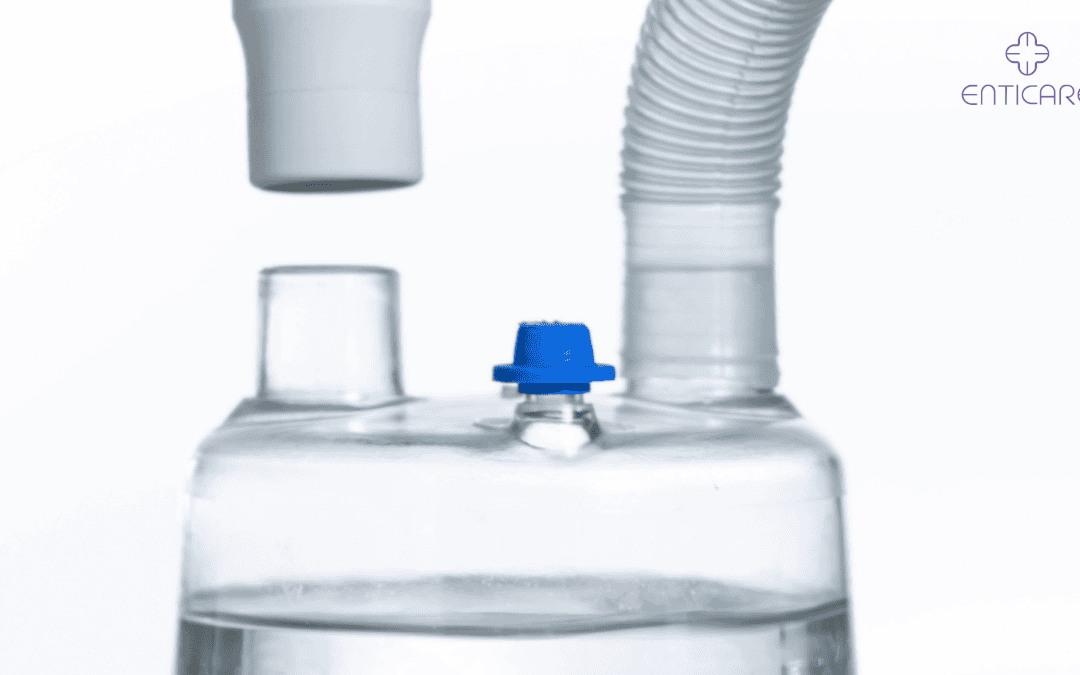Waking up with a dry, irritated throat after using your CPAP machine? You’re not alone. Many CPAP users experience these side effects, leading them to wonder: is the humidifier a must-have, or can it be skipped?
The answer, like most things in life, is: it depends. CPAP humidifiers add moisture to the air you breathe through your mask, potentially reducing dryness and congestion. However, using a humidifier isn’t always necessary, and it can come with its own set of challenges.
This blog post explores the pros and cons of using a CPAP humidifier, helping you decide if it’s right for you. We’ll also discuss alternatives for managing dryness and discomfort associated with CPAP therapy.
Benefits of Using a Humidifier
- Reduced dryness and irritation: Adding moisture to the air can help soothe a dry, scratchy throat and nasal passages, often experienced by new CPAP users.
- Improved comfort: Warm, moist air can feel more comfortable to breathe, especially in dry climates or during winter months.
- Potential for better sleep quality: Reduced irritation and congestion can lead to a more restful sleep.
Drawbacks of Using a Humidifier
- Rainout: This occurs when warm, moist air from the humidifier condenses in the mask or tubing, creating unwanted moisture on your face or inside the mask.
- Maintenance: CPAP humidifiers require regular cleaning and refilling with distilled water to prevent the growth of bacteria or mold.
- Increased noise: Some humidifiers can produce a low hum or bubbling sound, which might disrupt sleep for some users.
Alternatives to Using a Humidifier
- Drinking plenty of fluids: Staying hydrated from the inside out can help moisten your airways and reduce dryness.
- Using a saline nasal spray: Nasal sprays can help to lubricate and soothe irritated nasal passages.
- Trying a heated hose: Heated hoses help prevent condensation from forming in the tubing, potentially reducing rainout.
Finding Your CPAP Comfort Zone
- Start with a trial period: If you’re unsure whether you need a humidifier, discuss it with your doctor. They might recommend trying CPAP therapy with and without the humidifier to see which approach works best for you.
- Adjust the humidity level: Most humidifiers have adjustable settings. Start with a low setting and gradually increase it until you find a comfortable level without experiencing rainout.
- Proper CPAP mask fit: A well-fitting mask is essential for preventing leaks and ensuring optimal comfort.
Additional Considerations
- Climate: If you live in a dry climate, you might benefit more from using a humidifier.
- Medical conditions: Certain medical conditions, such as allergies or sinusitis, might make you more susceptible to dryness and benefit from a humidifier.
Making an Informed Decision
Ultimately, the decision of whether or not to use a humidifier with your CPAP depends on your individual needs and preferences. By understanding the pros and cons, exploring alternatives, and discussing with your doctor, you can achieve a comfortable and effective CPAP therapy experience.
Don’t hesitate to reach out to your doctor or sleep specialist with any questions or concerns you might have about using a CPAP humidifier or managing dryness associated with CPAP therapy. And if you have any questions, don’t hesitate to contact Enticare or call us at 480-214-9000, our expert team is here to assist you every step of the way.

